Driver unions, which contradicted the Railway Board when it prima facie blamed the now-deceased goods train driver for the deadly collision with the Kanchanjunga Express, have claimed they have fresh documents to prove his innocence.

They referred to authority letter T/369 (3B) issued to the goods train driver to cross the first two defective signals after the Ranipatra station premises with a 15 kmph speed restriction while the other authority letter -- T/A 912 -- did not mention any speed restriction.
Ten people, including the driver, lost their lives and 40 were injured in the accident near New Jalpaiguri on June 17. The employees' unions had said that squarely blaming the driver, who is not alive to defend himself, amounts to making him a scapegoat for the systematic shortcomings of the Railways.
Indian Railway Loco Runningmen Organisation's working president Sanjay Pandhi on Friday said, "T/A 912 was issued to all seven train drivers who passed Ranipatra station after 5.50 am to cross nine defective signals and it does not show any speed limit."
"However, T/369 (3B), which was issued separately to cross two signals immediately after leaving Ranipatra station premise (also called starter and advanced starter signals), imposes a speed limit of 15 kmph," he added.
Pandhi argued that the T/369 (3B) authority letter along with existing rules of driving during multiple signal failures prove that the goods train driver was right in crossing all defective signals at normal speed.
The Railway Board, in its initial response, said the goods' train driver overshot the signal which caused the accident. Later, it emerged that the automatic signalling system had failed since 5:50 am on that day due to which all automatic signals between Ranipatra and Chattar Hat turned defective.
The station master of Ranipatra, following the railway operation norms, issued the authority letter T/A 912 to all train drivers to pass through defective signals.
Railway Unions such as IRLRO and All India Railwaymen's Federation defended the deceased driver and said he had the authority letter to cross defective signals hence he was not at fault.
The Unions blamed the operating department of New Jalpaiguri for not ensuring that the section (route between Ranipatra and Chattar Hat) was clear before issuing T/A 912 to the goods train driver.
According to the Unions, when multiple signals in an automatic signalling system fail, safety norms dictate that the whole section should be converted into an absolute block system and only one train should be allowed at a time.
The Railway Board countered this argument, saying that even if the goods train driver was issued T/A 912, an authority to cross defective signals, he should have proceeded with a caution speed of 10 kmph with a one-minute stoppage at each red signal.
Five senior officials of a joint probe team held on June 18 that the goods train driver was guilty of violating signal aspects and speed restrictions. One official of the probe team gave a dissenting opinion and blamed the operating department of the New Jalpaiguri division.
Now, it has come to light that after the signalling failure at Ranipatra, authority letter T/369 (3B) was also issued to all drivers, asking them to pass two defective departure signals immediately after the station premises with a restrictive speed of 15 kmph.
A railway safety expert said, “T/369 (3B) is issued to train drivers when two signals (called starter and advanced started) that come immediately after the station premises turn defective. T/A 912 is issued for all other signals after these two signals till the home signal (an entry signal) of the next station."
Pandhi said there were 11 signals between Ranipatra and Chattar Hat stations.
"If I put it in sequence, these 11 signals include Ranipatra station's starter, advanced starter and automatic signals AS-654, AS-652, AS-650, AS-648, AS-646, AS-644, AS-642, AS-640 and AS-638. After all these signals, the Home Signal of Chattar Hat station comes," Pandhi said.
"Now, if you see T/369 (3B), it tells the driver to pass the starter and advanced starter at 15 kmph speed and then T/A 912 tells the driver to pass the remaining nine signals without mentioning any speed limit. It is very much obvious that the driver will cross all these signals at normal speed," he added.
Shiv Gopal Mishra, the general secretary of AIRF, said, "The station master should have ensured that the section is clear of any train before issuing these two authority letters. Maintaining precaution in a defective signalling system is everyone's duty but the goods train driver should not be held responsible."
The matter is now being investigated by the Commissioner of Railway Safety.
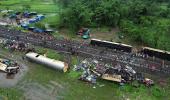
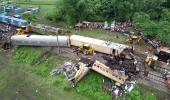

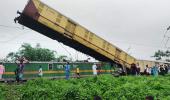
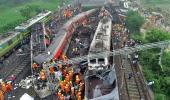





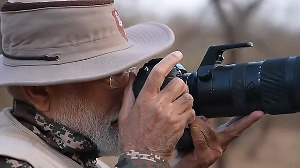
 © 2025
© 2025